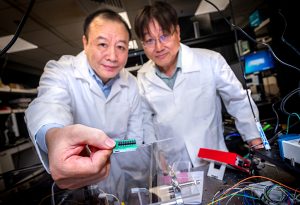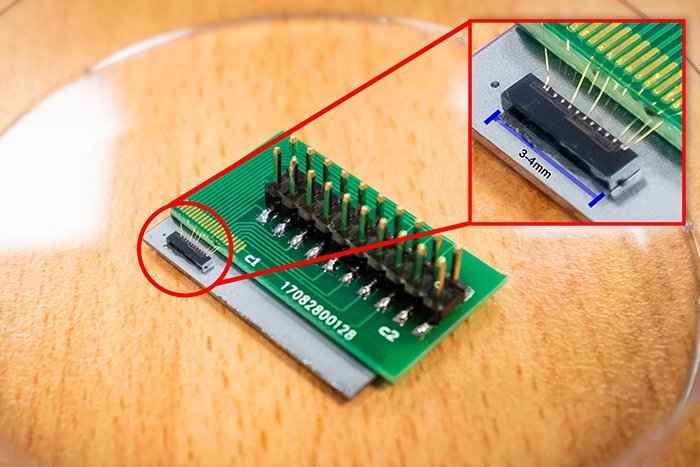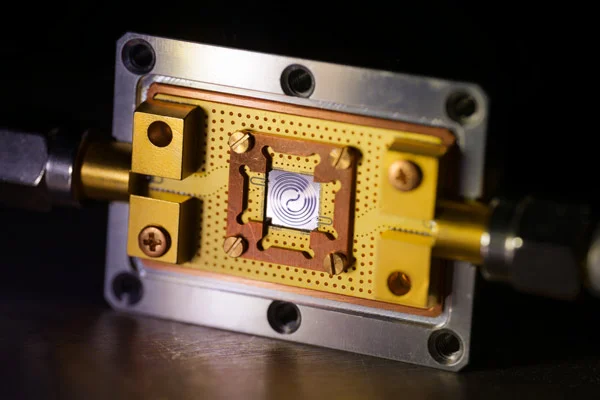If you’re using a personal identification number — PIN — or a password to purchase an item with your smartphone, hackers can intercept and steal that data. Quantum technology can make sure that those valuable bits of communications aren’t being snooped on.
The problem with using quantum technology, though, is that current chips are far too big to be used for guarding these types of transactions. Now, a team of researchers at Nanyang Technological University (NTU) in Singapore report that they have developed a quantum communication chip that is 1,000 times smaller than current quantum setups, but offers superior security quantum technology.
In a news release the researchers said that the chip is about 3mm and uses quantum communication algorithms that can provide enhanced security compared to current standards.
Because the global economy increasingly relies on digital data, protecting that information is becoming a global priority, according to the researchers who report their findings in Nature Photonics.

“In today’s world, cyber security is very important as so much of our data is stored and communicated digitally,” said Liu Ai Qun, professor of electrical and electronic engineering. “Almost all digital platforms and repositories require users to input their passwords and biometric data, and as long as this is the case, it could be eavesdropped on or deciphered. Quantum technology eliminates this as both the password and information are integrated within the message being sent, forming a ‘quantum key.’”
Associate professor Kwek Leong Chuan, who worked on the project, said that quantum communication works by using randomized strings of code to encrypt the information, which can only be opened by the intended recipient with the correct ‘key’. There is no need for additional passwords or biometric data to be transmitted, which is the standard practice in current forms of communication.

“It is like sending a secured letter,” said Kwek. “Imagine that the person who wrote the letter locked the message in an envelope with its ‘key’ also inside it. The recipient needs the same ‘key’ to open it. Quantum technology ensures that the key distribution is secure, preventing any tampering to the ‘key.’”
According to the researchers, the system needs 1,000 times less space than current quantum communication setups that can be as big as a refrigerator or even take up the space of an entire room or office floor. This opens the door for more secure communication technologies that can be deployed in compact devices such as smartphones, tablets and smart watches. It also lays the foundation for better encryption methods for online transactions and electronic communication.
The researchers said that the quantum communication chip will be cost effective as it uses standard industry materials such as silicon, which also makes it easy to manufacture.
Liu said, “This is the future of communication security and our research brings us closer to quantum computing and communication. It will help spark the creation of next-generation communication devices, as well as enhance digital services such as online financial portals of banks, and digital government services”
Next step for the team will be the development of a hybrid network of traditional optical communication systems and quantum communication systems. This will improve the compatibility of quantum technologies that can be used in a wider range of applications such as internet connectivity.














